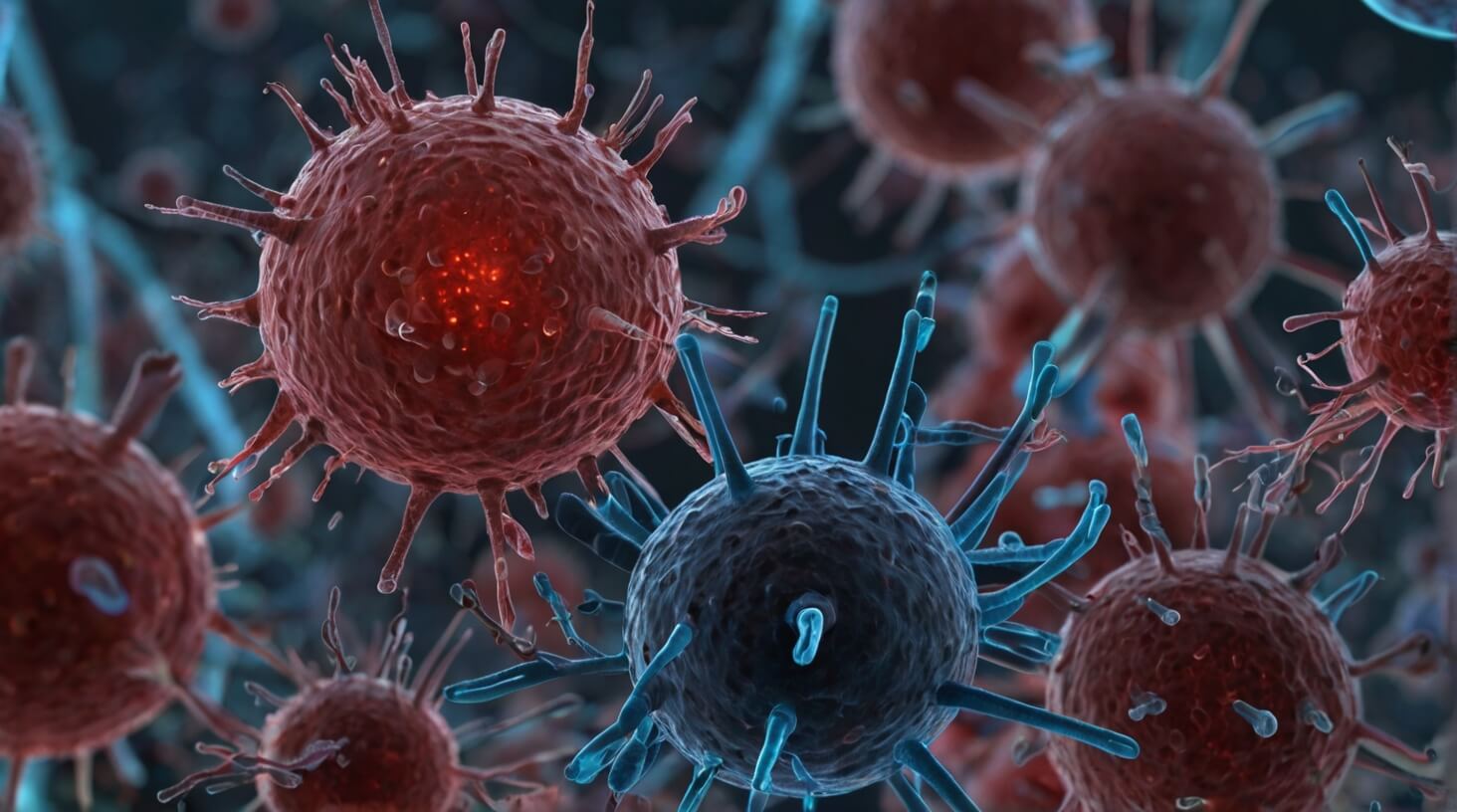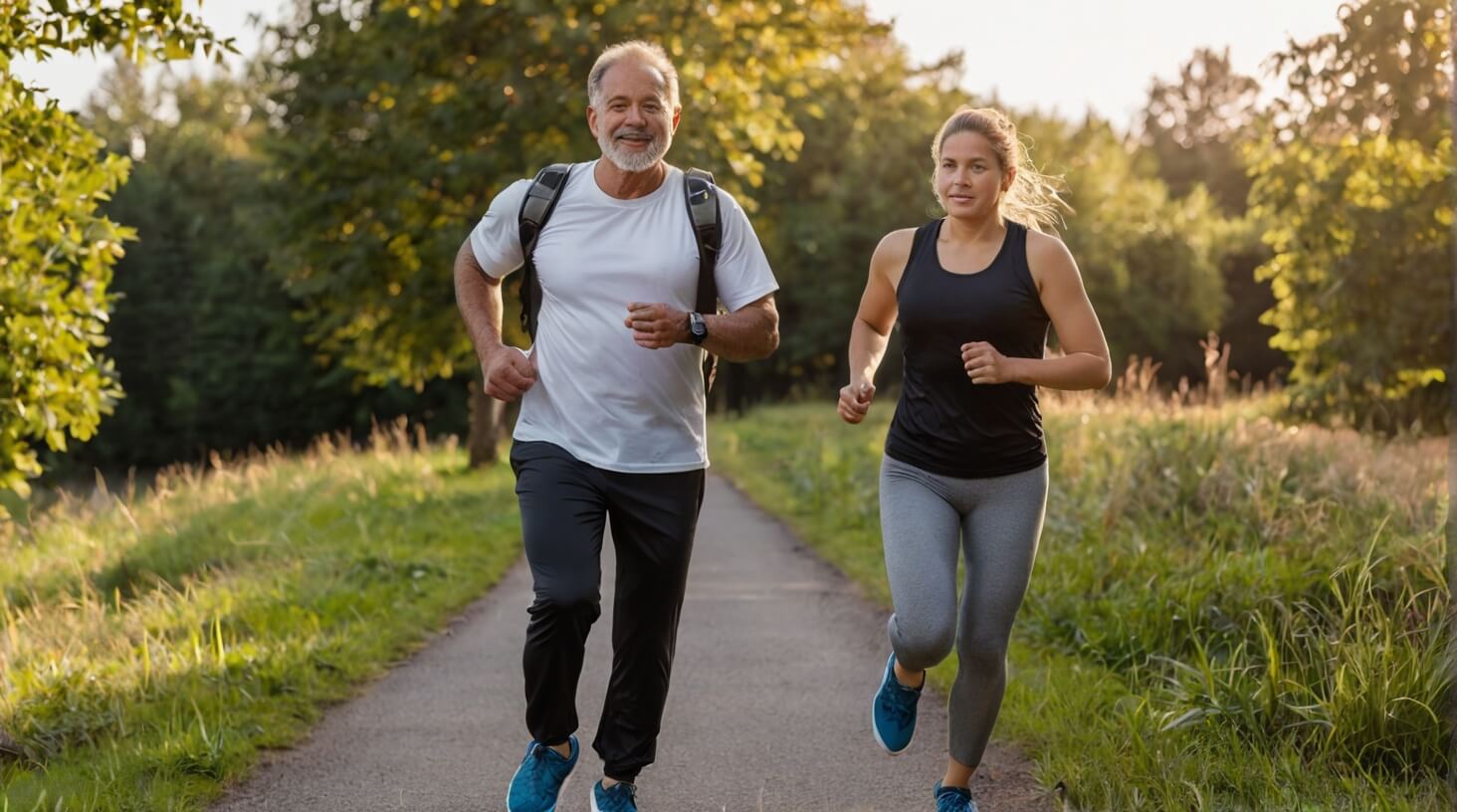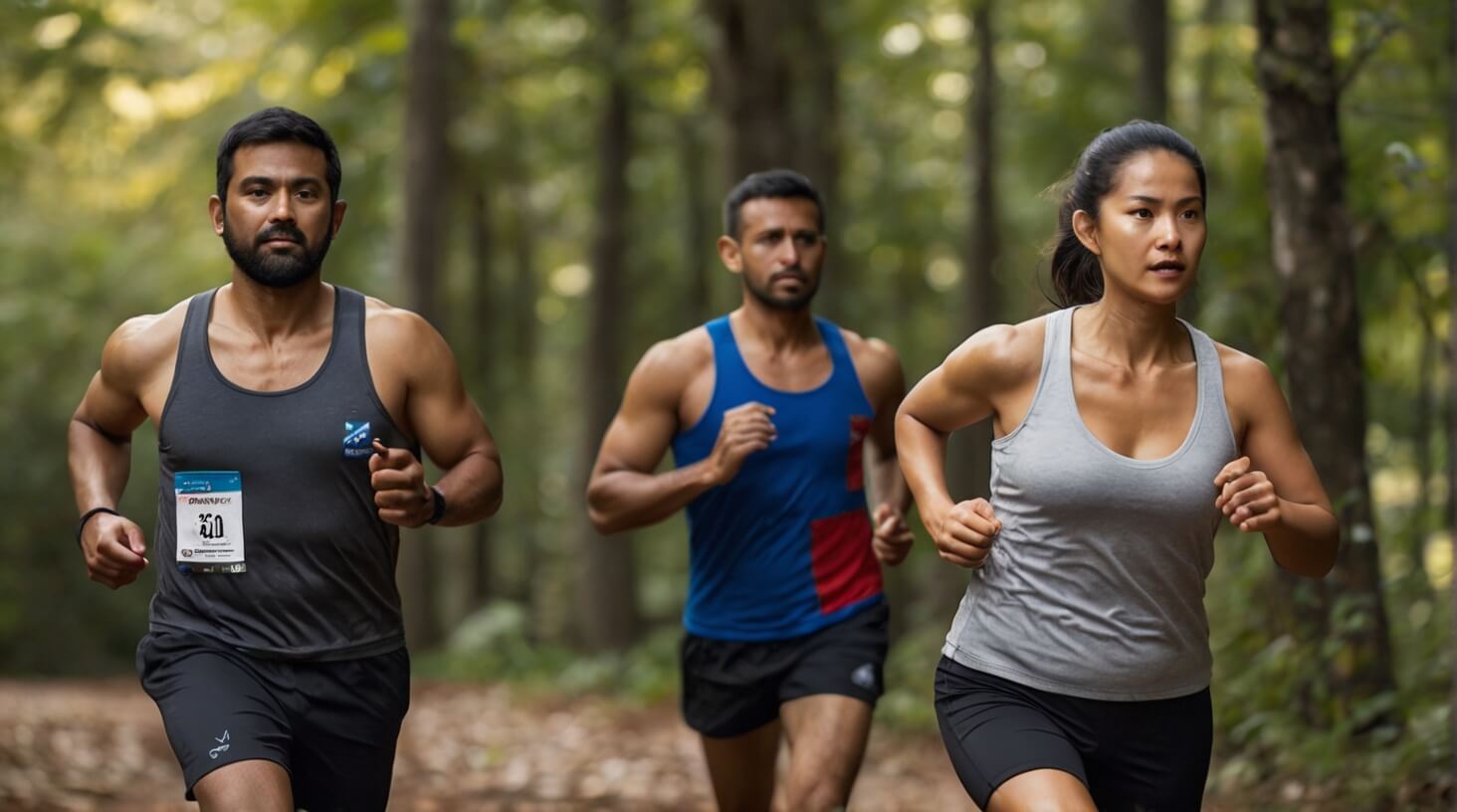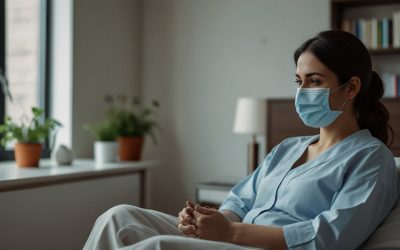You might think that the fountain of youth is a myth, but when it comes to bolstering your immune system, regular exercise could be the closest thing you’ll find, especially as you age. As you navigate your golden years, you’re fighting against a natural decline in immune function, a phenomenon known as immunosenescence, which can make you more susceptible to infections and disease. But don’t resign yourself to this fate just yet; you have a powerful tool at your disposal. Engaging in consistent physical activity has been shown to give your immune response a much-needed boost, acting as a fortifying agent against the relentless tide of aging. Understandably, you might be wondering exactly how much exercise is enough to reap these benefits and what types of activities are best suited for you. Stay tuned, because the answers to these questions could be the key to not only improving your immunity but also enhancing your overall quality of life.
Key Takeaways
- The immune system naturally declines with age, making older adults more susceptible to infections, diseases, autoimmune disorders, and cancer.
- Exercise plays a crucial role in enhancing adaptive immunity in the elderly, improving T cell function, lymphocyte proliferation, B cell antibody production, vaccine efficacy, and supporting innate and adaptive immunity.
- Regular physical activity can mitigate the risks of chronic infections, influence immune cell function, alter production of inflammatory cytokines, improve T cell phenotype, and optimize antibody response in older adults.
- Exercise helps tackle immunosenescence, enhances T cell function and antibody responses, reduces chronic inflammatory markers, and modulates age-related inflammation.
Understanding Immunosenescence

As you age, your immune system gradually wears down in a process known as immunosenescence, making it harder for your body to fend off infections and diseases effectively. This decline is part of the natural aging process, and it affects both the innate immune system and adaptive immune responses. For you, particularly as an elderly individual, this means an increased susceptibility to infectious diseases, heightened risk of autoimmune disorders, and a greater chance of developing cancer.
Immunosenescence is not just a theoretical concern; it has tangible effects on health and longevity. It directly impacts morbidity and mortality among older adults by elevating the incidences of infectious diseases. This functional decline is due in part to changes in antigen-specific cells such as B cells and T cells, which are crucial for your body’s ability to identify and combat pathogens.
Innate immunity, your body’s first line of defense, becomes dysregulated during the effects of aging, leading to a less effective response to invaders. Meanwhile, the adaptive immune response, which involves the body’s ability to remember and attack specific pathogens, also weakens. This means that vaccines may be less effective, and previous exposures to pathogens might not offer the same level of protection as they once did.
However, all is not lost. Engaging in regular physical activity can be a powerful strategy to counteract the effects of immunosenescence. Exercise is known to bolster immune function, potentially reducing the health risks associated with this age-related decline. For those who serve the elderly, encouraging and facilitating regular, age-appropriate exercise can be a vital part of maintaining their health and resilience.
Exercise and Adaptive Immunity
Building on the understanding of immunosenescence, engaging in regular physical activity can significantly enhance adaptive immunity, which is critical for your body’s ability to combat specific pathogens. As you age, your immune system’s efficacy wanes, but exercise interventions offer a beacon of hope, bolstering your immune response where it’s needed most.
Here’s how exercise affects adaptive immunity in the elderly:
- T Cells
- *Improves T cell function*: Regular exercise promotes better T cell responsiveness, helping your body to recognize and respond to pathogens more efficiently.
- *Encourages lymphocyte proliferation*: Exercise stimulates the production of new T cells, countering the age-related decline in adaptive immune cells.
- B Cells
- *Enhances B cell antibody production*: Physical activity supports the generation of a robust antibody-mediated immune response.
- *Increases vaccine efficacy*: Exercise has been shown to improve your body’s response to vaccinations, a critical component of adaptive immunity.
In the context of the elderly, exercise interventions are especially important. With heightened incidences of infectious diseases, the role of exercise in reinforcing both innate and adaptive immunity is paramount. For instance, NK cell activity (NKCA)—a part of the innate immune response—along with salivary IgA levels, are both positively influenced by exercise, creating a synergistic effect that supports overall health.
Chronic Infections and Physical Activity

Engaging in regular physical activity can significantly mitigate the risks associated with chronic infections in the elderly, enhancing immune system responses and potentially leading to improved health outcomes. As you age, your immune system naturally becomes less effective, a phenomenon known as immunosenescence. This leaves you more susceptible to chronic infections, which can dramatically affect your quality of life. However, by incorporating an exercise program into your daily routine, you’re not just moving your body; you’re actively bolstering your immune defenses.
Physical activity plays a multifaceted role in modulating immune responses. For instance, it influences the function and distribution of natural killer cells and other immune cells, which are crucial in surveilling and responding to pathogenic threats. Regular exercise also alters the production of inflammatory cytokines, which are pivotal in the body’s response to infection. By adjusting the balance of these cytokines, exercise can promote a more regulated and efficient immune response in the elderly.
Furthermore, exercise impacts the adaptive arm of the immune system. It can improve the T cell phenotype, which is essential in fighting off chronic infections. An optimized antibody response, facilitated by regular physical activity, is another key factor in combating long-standing infections.
To serve the elderly effectively, healthcare providers should advocate for and facilitate the implementation of tailored physical activity programs. Such programs can lead to not only a reduction in the incidence of chronic infections but also a general improvement in the overall health of older adults. Remember, as aging is an inevitable part of life, maintaining a robust immune system through physical activity is a proactive step towards ensuring a healthier, more vibrant later life.
Inflammation, Exercise, and Aging
While incorporating exercise into your daily routine strengthens immune defenses against chronic infections, it also plays a critical role in modulating age-related inflammation. As you grow older, your immune system undergoes immunosenescence, a complex dysregulation that increases your susceptibility to various health challenges. Engaging in moderate physical activity can be a powerful tool to combat this decline.
Here’s how exercise impacts inflammation and aging:
- Tackles Immunosenescence:
- Exercise enhances T cell function, crucial for your immune response.
- It improves antibody responses, bolstering your defenses against infectious diseases.
- Reduces Chronic Inflammatory Markers:
- Regular activity lowers pro-inflammatory cytokines, substances that can contribute to chronic inflammatory conditions.
- It stimulates anti-inflammatory responses, helping to maintain a balanced immune system.
Research underscores the importance of moderate physical activity for older adults, revealing its potential to mitigate aging’s toll on the immune system. By incorporating exercise into your life, you’re not only warding off infectious diseases but also preserving your overall health and vitality.
A systematic search of the literature confirms that targeted exercise programs for the elderly significantly influence cytokine production, which is a key factor in immune regulation. This scientific evidence supports the notion that exercise, a non-pharmacological intervention, is essential in the management of age-related immune changes.
To serve your community, especially the aging population, encouraging and facilitating regular exercise can make a profound difference in their quality of life. It’s a commitment to nurturing a healthier, more resilient collective immune system, empowering older adults to live more robustly in the face of aging and inflammation.
Exercise Impact on Innate Immunity

Delving into the realm of innate immunity, regular exercise acts as a potent enhancer of this first line of defense, particularly critical for older adults combating the effects of immunosenescence. As you serve the aging population, understanding the interplay between activity and immune system function in the elderly is essential. Exercise training, particularly moderate exercise, is not merely about maintaining muscle mass and cardiovascular health; it’s also a vital intervention for bolstering immune defenses.
Elderly subjects who engage in regular, moderate physical activity experience fewer infections and show improved vaccine efficacy, demonstrating the profound effect of exercise on both innate and adaptive immunity. This is partly due to the improved function of immune cells like dendritic cells (DCs) and neutrophils, which are pivotal in pathogen detection and elimination.
| Immune Component | Impact of Moderate Exercise |
|---|---|
| Neutrophil function | Enhanced phagocytic activity |
| Dendritic cells (DCs) | Improved antigen presentation |
| Cytokine production | Optimized inflammatory response |
These immune changes are significant, considering the heightened risk of infectious diseases in this demographic due to immunosenescence. By promoting immune surveillance and response through moderate exercise, you’re directly contributing to the health and longevity of older adults.
Encourage exercise training as a viable therapy to influence T cell phenotype, amplify antibody responses to vaccination, and modulate cytokine production. The beauty lies in the simplicity of the intervention: regular, moderate exercise can potentially reverse physiological alterations in immune function associated with aging. Keep this in mind as you support the activity and immune health of the elderly, fostering a stronger defense against the relentless challenge of time.
Physical Activity Recommendations
Recognizing the substantial benefits of moderate exercise on immune function, it’s vital to outline specific physical activity recommendations tailored for the elderly to sustain their health and well-being. As you design exercise programs for this demographic, consider the physiological changes that accompany aging and the unique needs of your clientele, including elderly women, who may have different fitness levels and health concerns.
To enhance immune response and decrease the risk of infection, the following guidelines should capture your attention:
- Long-Term, Moderate Training
- Frequency: Aim for most, preferably all, days of the week.
- Intensity: Focus on moderate intensity, where exercise seems challenging, yet achievable.
- Type: Include aerobic activities, muscle-strengthening exercises, and balance training.
- Tailored Exercise Programs
- Adaptations: Adjust the intensity of exercise and duration according to individual capabilities and chronic diseases.
- Monitoring: Regularly assess progress and adapt the program as necessary.
Physical activity should be a cornerstone in the management of health for the elderly. Not only does moderate training help reverse age-related declines in immune function, but it also provides psychosocial benefits, improving quality of life.
For elderly women, specifically, exercise programs should account for bone density preservation and the potential for increased antibody response to vaccines. Remember, while exercise can’t replace pharmacological treatments, it’s a complementary approach that often enhances therapeutic outcomes.
Your knowledge and application of these physical activity recommendations will serve as a beacon for those seeking to maintain or improve their health through their golden years. Always ensure safety and encourage consistency; this is where exercise’s true potential to fortify the immune system and combat physiological changes shines.











